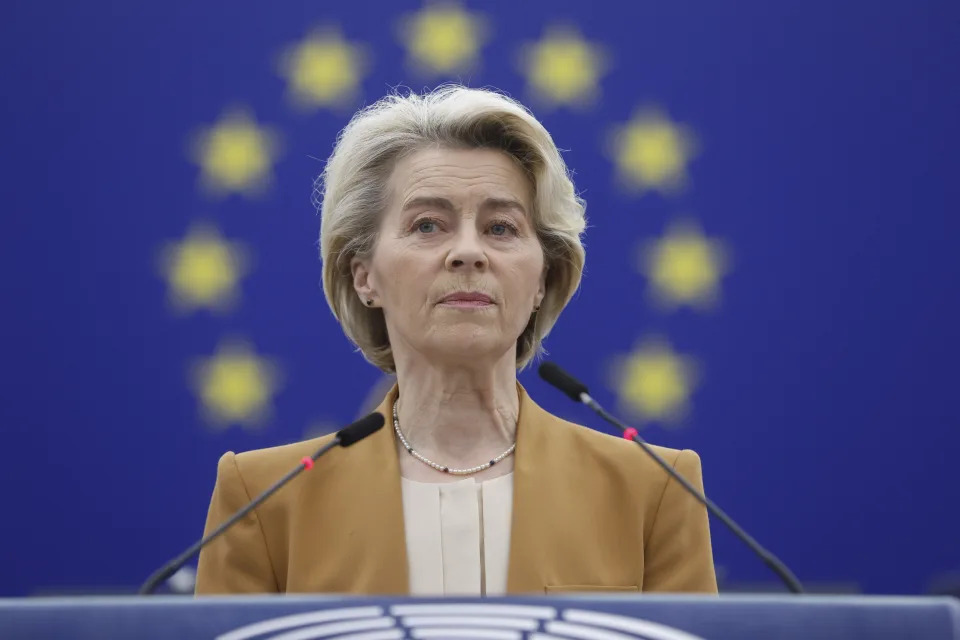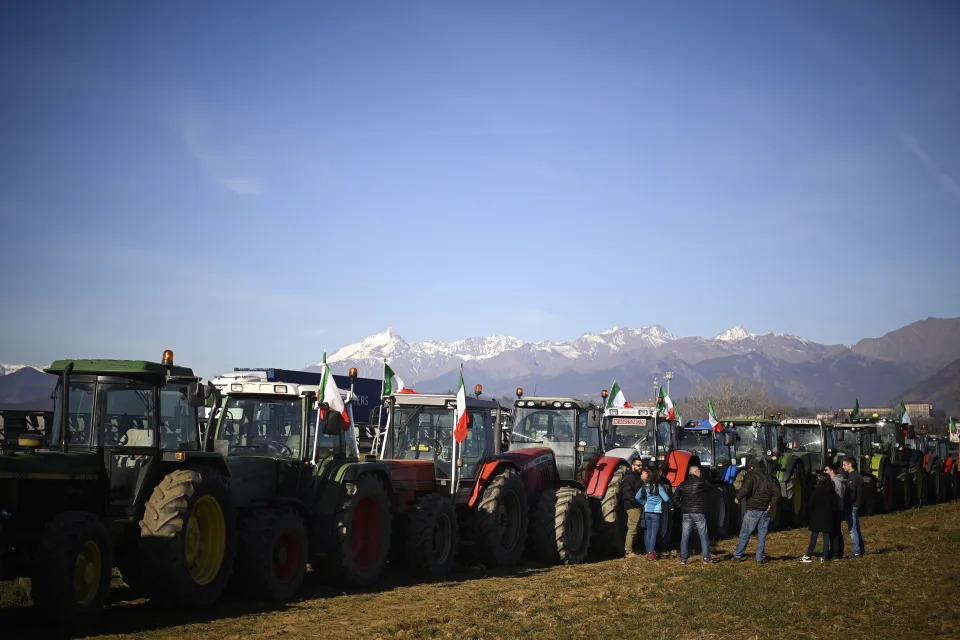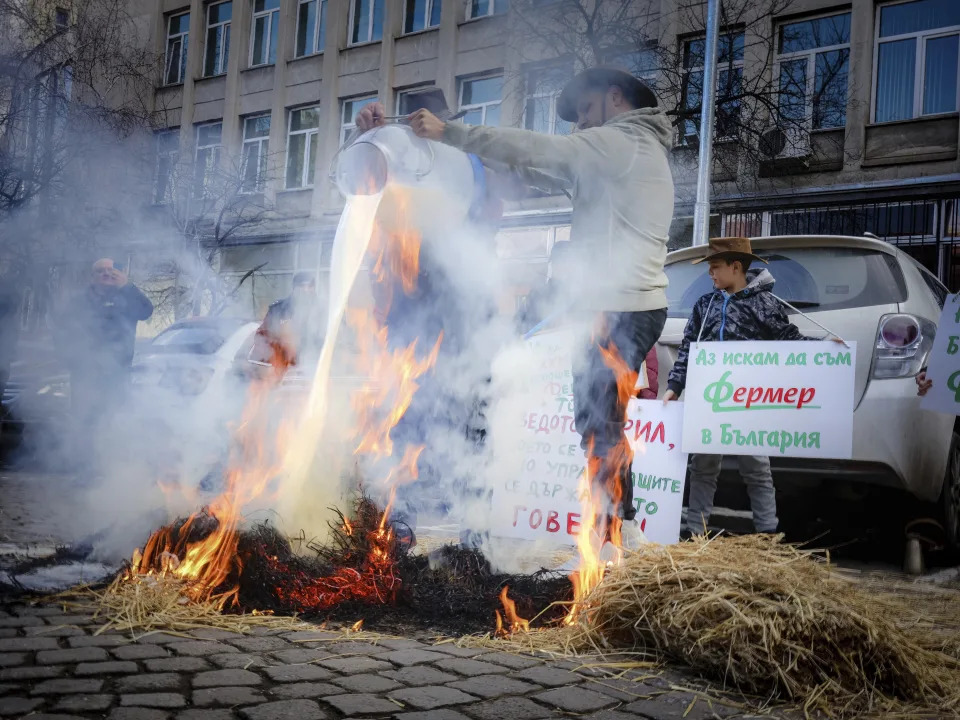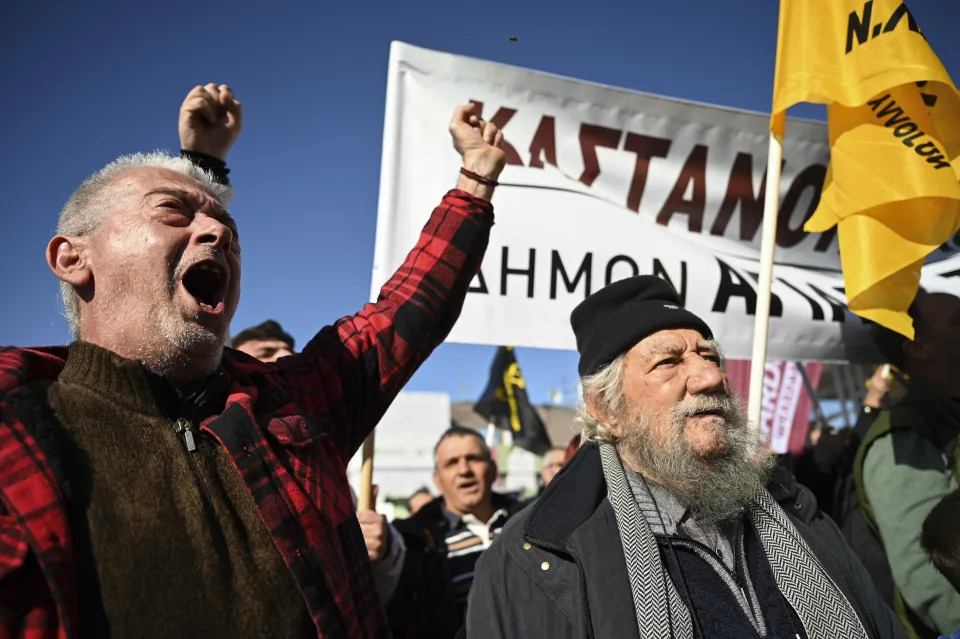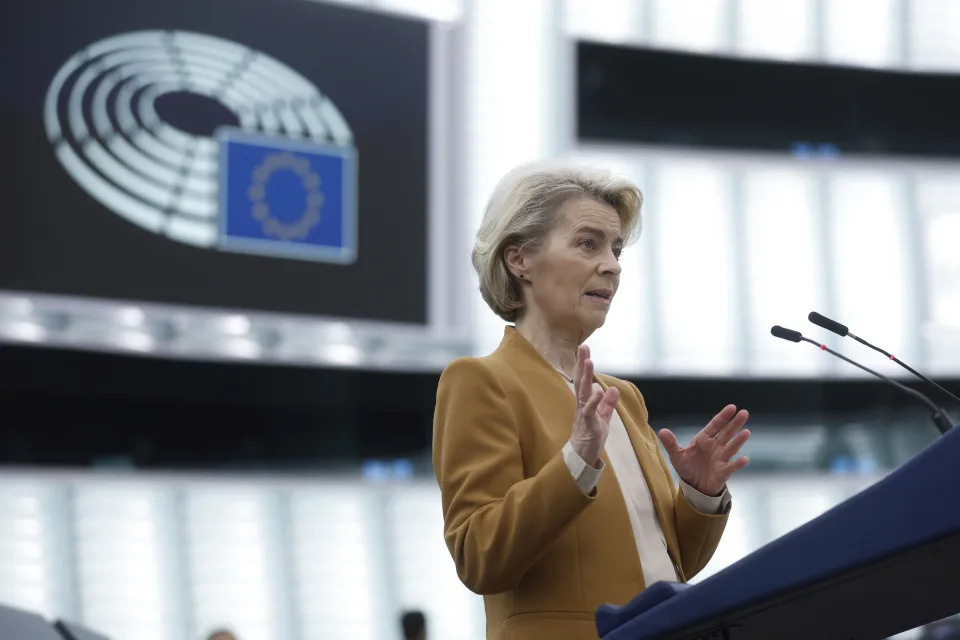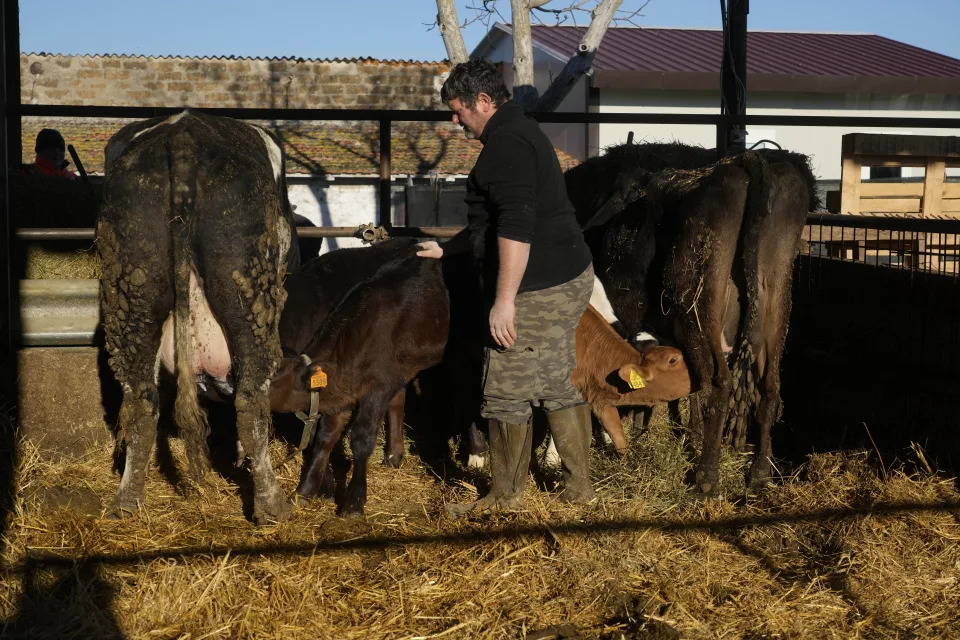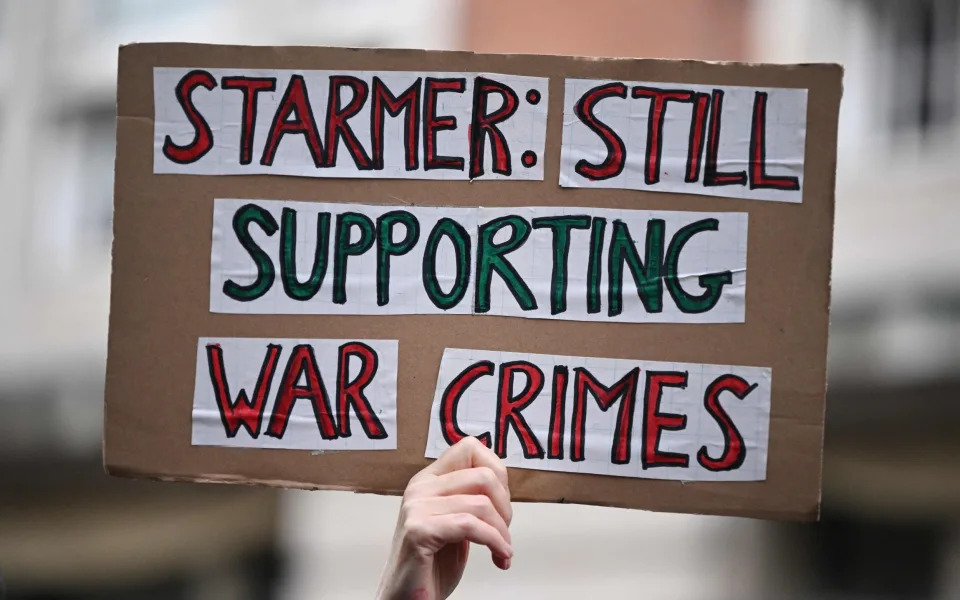in UK since 2001 faces deportation
Diane Taylor
Sun, 4 February 2024

João Rocha Gonçalves Da Silva.Photograph: Handout
The Home Office has threatened a Portuguese plumber who has lived legally in the UK for more than 20 years with deportation after he struggled with his application to remain in the country.
According to lawyers and human rights campaigners the case of João Rocha Gonçalves Da Silva, 45, is evidence of the Home Office’s increasingly hostile environment policy regarding EU citizens.
Da Silva’s lawyer has said there is a risk of another Windrush-type scandal affecting vulnerable EU citizens who have applied late for the EU Settlement Scheme (EUSS) unless the government changes course.
Da Silva arrived in the UK in May 2001 and has worked for his employer Domenic Tomeo, 48, since 2007 in his plumbing business. He has always paid his taxes and has no criminal record.
“Joao is like family to me. He’s a hard worker and 100% trustworthy,” said Tomeo.
A tearful Da Silva told the Guardian: “I’m scared the Home Office will send me back to Portugal. My parents are dead and I have nobody left there now. I consider the UK to be my home and my boss is my family.”
Da Silva tried to apply for EUSS using the Home Office app in 2019 but it was unable to scan his Portuguese ID card. Da Silva applied for a new ID card but had the same problem.
Related: Home Office U-turns on rights of EU citizens who were in UK pre-Brexit
He then tried to apply online but he was unable to do so because he did not have the correct technology. He contacted the Home Office helpline for assistance, but because of a speech impediment and the fact that English is not his first language, the person on the helpline did not understand him.
Da Silva finally found a community organisation to help him submit a late application on 7 November last year, but the Home Office rejected his application just over two weeks later.
In his application Da Silva explained that he had submitted it late because of problems related to his speech impediment. Officials responded that it “is not considered to constitute reasonable grounds for your delay in making your application”.
The Home Office rejection letter contained 11 bullet points of what would now happen to Da Silva including being fined, detained, imprisoned and banned from the UK. There is no right of appeal against the rejection.
His lawyer, Naga Kandiah of MTC Solicitors, has launched a legal challenge against the rejection, arguing that it breaches the EU withdrawal agreement and misapplies the guidance. It calls on the Home Office to accept Da Silva’s application as valid and to introduce a right of appeal for these cases.
“Mr Da Silva is a long term resident of the United Kingdom with a clear entitlement to remain here under the withdrawal agreement,” said Kandiah. “His case shows the risk that EU citizens who have been lawfully resident for many years may suddenly find themselves stripped of their rights overnight. The Home Office needs to carefully consider its approach to avoid another scandal comparable to Windrush.”
The Home Office tightened up the criteria for what officials now consider “reasonable grounds” for late applicants in August 2023.
The most recently available data is to 30 September 2023, almost two months after the changes were brought in on 9 August last year. In August, 9,470 applications were found “invalid” – three times higher than the average of 2,943 a month in previous months. In September, 13,930 applications were found invalid, almost five times higher than the previous average.
Andreea Dumitrache, a spokesperson for the3million, which supports the rights of EU citizens in the UK, said: “The ‘reasonable grounds’ people have to satisfy in order to make a late application are anything but reasonable. We’re seeing marginalised people being punished unjustly, and left to suffer at the hands of the government’s hostile environment. This system creates vulnerability and can push anyone into destitution.”
A Home Office spokesperson said: “The EU settlement scheme has provided millions of EU citizens and their eligible family members with the immigration status they need to continue living and working in the UK now that we have left the EU.
“The deadline for applying to the scheme passed more than two years ago but, in line with the citizens’ rights agreements, we continue to accept and consider late applications from those with reasonable grounds for their delay in applying.”
Diane Taylor
Sun, 4 February 2024

João Rocha Gonçalves Da Silva.Photograph: Handout
The Home Office has threatened a Portuguese plumber who has lived legally in the UK for more than 20 years with deportation after he struggled with his application to remain in the country.
According to lawyers and human rights campaigners the case of João Rocha Gonçalves Da Silva, 45, is evidence of the Home Office’s increasingly hostile environment policy regarding EU citizens.
Da Silva’s lawyer has said there is a risk of another Windrush-type scandal affecting vulnerable EU citizens who have applied late for the EU Settlement Scheme (EUSS) unless the government changes course.
Da Silva arrived in the UK in May 2001 and has worked for his employer Domenic Tomeo, 48, since 2007 in his plumbing business. He has always paid his taxes and has no criminal record.
“Joao is like family to me. He’s a hard worker and 100% trustworthy,” said Tomeo.
A tearful Da Silva told the Guardian: “I’m scared the Home Office will send me back to Portugal. My parents are dead and I have nobody left there now. I consider the UK to be my home and my boss is my family.”
Da Silva tried to apply for EUSS using the Home Office app in 2019 but it was unable to scan his Portuguese ID card. Da Silva applied for a new ID card but had the same problem.
Related: Home Office U-turns on rights of EU citizens who were in UK pre-Brexit
He then tried to apply online but he was unable to do so because he did not have the correct technology. He contacted the Home Office helpline for assistance, but because of a speech impediment and the fact that English is not his first language, the person on the helpline did not understand him.
Da Silva finally found a community organisation to help him submit a late application on 7 November last year, but the Home Office rejected his application just over two weeks later.
In his application Da Silva explained that he had submitted it late because of problems related to his speech impediment. Officials responded that it “is not considered to constitute reasonable grounds for your delay in making your application”.
The Home Office rejection letter contained 11 bullet points of what would now happen to Da Silva including being fined, detained, imprisoned and banned from the UK. There is no right of appeal against the rejection.
His lawyer, Naga Kandiah of MTC Solicitors, has launched a legal challenge against the rejection, arguing that it breaches the EU withdrawal agreement and misapplies the guidance. It calls on the Home Office to accept Da Silva’s application as valid and to introduce a right of appeal for these cases.
“Mr Da Silva is a long term resident of the United Kingdom with a clear entitlement to remain here under the withdrawal agreement,” said Kandiah. “His case shows the risk that EU citizens who have been lawfully resident for many years may suddenly find themselves stripped of their rights overnight. The Home Office needs to carefully consider its approach to avoid another scandal comparable to Windrush.”
The Home Office tightened up the criteria for what officials now consider “reasonable grounds” for late applicants in August 2023.
The most recently available data is to 30 September 2023, almost two months after the changes were brought in on 9 August last year. In August, 9,470 applications were found “invalid” – three times higher than the average of 2,943 a month in previous months. In September, 13,930 applications were found invalid, almost five times higher than the previous average.
Andreea Dumitrache, a spokesperson for the3million, which supports the rights of EU citizens in the UK, said: “The ‘reasonable grounds’ people have to satisfy in order to make a late application are anything but reasonable. We’re seeing marginalised people being punished unjustly, and left to suffer at the hands of the government’s hostile environment. This system creates vulnerability and can push anyone into destitution.”
A Home Office spokesperson said: “The EU settlement scheme has provided millions of EU citizens and their eligible family members with the immigration status they need to continue living and working in the UK now that we have left the EU.
“The deadline for applying to the scheme passed more than two years ago but, in line with the citizens’ rights agreements, we continue to accept and consider late applications from those with reasonable grounds for their delay in applying.”











